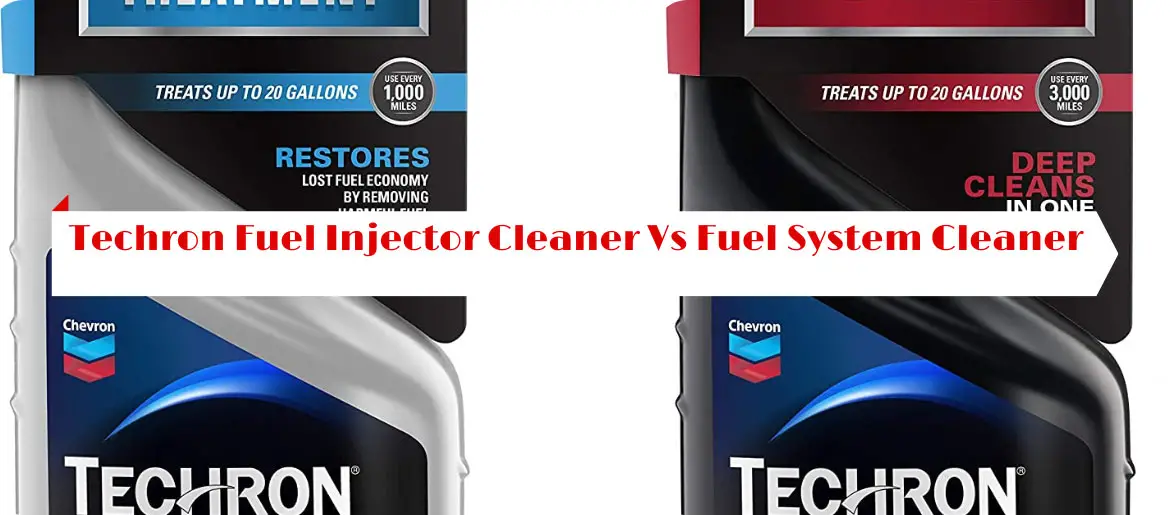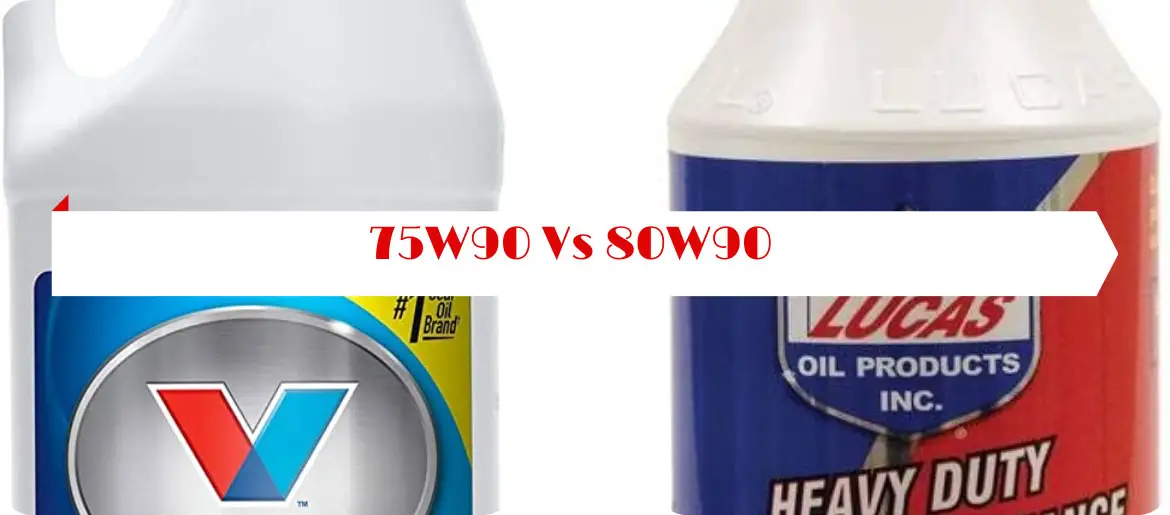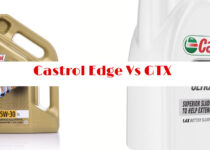OW20 Oil vs 5W20 | Engine Oil Comparison
Ow20 oil and 5W20 are both types of engine oil, but the main difference lies in their viscosity ratings. Ow20 oil has a lower viscosity at colder temperatures, providing better engine start-up protection, while 5W20 oil offers improved fuel economy.
Choosing the right engine oil for your car is crucial for optimal performance and longevity. One common comparison that often arises is between Ow20 oil and 5W20 oil. While they may seem similar, there are subtle differences that can impact your car’s engine efficiency.
We will explore the distinctions between OW20 oil and 5W20 oil, focusing on their viscosity ratings and how they can affect your vehicle’s overall performance. By understanding these variations, you can make an informed decision when it comes to selecting the most suitable oil for your car’s needs.
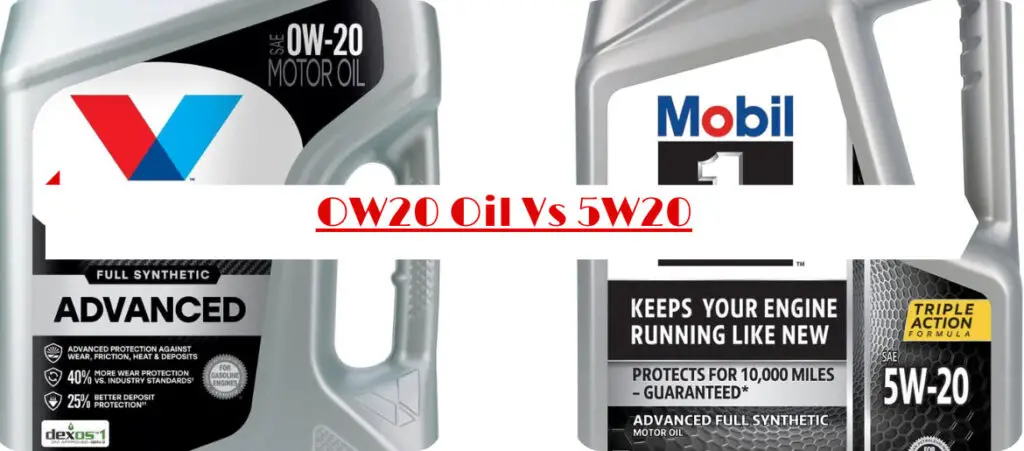
What Is Ow20 Oil Vs 5w20?
Choosing the right oil for your car’s engine is crucial for its performance and longevity. Ow20 oil and 5W20 are both popular choices, but they have some key differences.
Ow20 oil, also known as 0W20, is a thinner viscosity oil that provides better fuel economy and enhanced cold start protection. It is designed for newer car models that require this specific viscosity rating. On the other hand, 5W20 oil is slightly thicker than Ow20, making it more suitable for older car engines and certain weather conditions.
One of the main differences between Ow20 oil and 5W20 is their viscosity at different temperatures. Ow20 oil flows more easily at lower temperatures, which helps with engine start-up. 5W20, on the other hand, provides better protection at higher temperatures and is less likely to thin out.
It is important to consult your car’s owner manual or speak with a qualified mechanic to determine which oil is recommended for your specific make and model. Following the manufacturer’s guidelines will ensure optimal engine performance and minimize the risk of damage.
Understanding Ow20 Oil
Ow20 oil is a popular choice for engines due to its unique characteristics and properties. It is a type of synthetic oil designed especially for modern engines to provide superior lubrication and protection.
Key characteristics and properties of Ow20 oil include:
| Characteristics | Properties |
|---|---|
| Low viscosity | Improves fuel efficiency and reduces friction |
| Excellent thermal stability | Resists breakdown at high temperatures |
| Improved cold-start performance | Ensures easy engine startup in cold weather conditions |
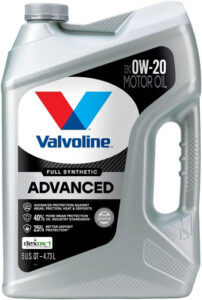
Using Ow20 oil for your engine offers several benefits. One of the main advantages is improved fuel efficiency. The low viscosity of Ow20 oil reduces friction, allowing your engine to operate more smoothly and efficiently. This can lead to better mileage and reduced fuel consumption.
It is important to note that Ow20 oil may not be suitable for all engines. Always consult your vehicle manufacturer’s recommendations to ensure the correct oil is used for your specific engine.
Understanding 5w20 Oil
5W20 oil is a multi-viscosity engine lubricant that offers several benefits. Its numerical rating denotes its viscosity or thickness, which affects its flow at different temperatures. The “5W” in 5W20 indicates the oil’s ability to flow smoothly at lower temperatures, while the “20” refers to its thickness when the engine is running at normal operating temperatures. This specific viscosity range provides optimal engine performance and protection without sacrificing fuel efficiency.
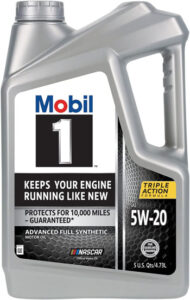
Using 5W20 oil offers several advantages for your engine. Firstly, it improves cold start-ups by reducing engine wear during initial ignition. Secondly, it provides enhanced lubrication in extreme temperature conditions, ensuring proper engine protection. Lastly, this oil’s low viscosity helps reduce internal friction, increasing overall engine efficiency and fuel economy.
By choosing 5W20 oil for your engine, you can ensure smoother operations, improved fuel efficiency, and reduced wear and tear, regardless of the temperature outside. It’s important to consult your vehicle’s manufacturer recommendations to ensure you are using the right viscosity oil for optimal engine performance.
Ow20 Oil Vs 5w20: Performance Comparison
In the world of engine oils, two common options are Ow20 and 5W20. One of the key factors to consider when comparing these oils is their viscosity. Viscosity refers to the oil’s resistance to flow at different temperatures.
Ow20 oil has a lower viscosity compared to 5W20 oil. This means that Ow20 oil is thinner and flows more easily. It is well-suited for cold weather conditions as it provides quick lubrication during cold starts. Additionally, Ow20 oil offers improved fuel efficiency due to its lower internal friction.
On the other hand, 5W20 oil has a higher viscosity compared to Ow20 oil. It provides better protection for engines during high temperature and heavy load operations. 5W20 oil is particularly beneficial in hot weather conditions and for vehicles that are regularly subjected to towing or carrying heavy loads.
Choosing the right oil depends on various factors, such as weather conditions and the type of vehicle usage. Ow20 oil is favored in colder climates, while 5W20 oil is more suitable for hotter temperatures and demanding driving conditions. Always refer to your vehicle’s manual for the recommended oil viscosity.
Fuel Efficiency And Ow20 Oil Vs 5w20
When it comes to fuel efficiency, choosing the right oil is crucial. Both OW20 oil and 5W20 oil have an impact on the mileage your vehicle can achieve. Using the correct oil can help improve fuel efficiency and save you money in the long run.
Ow20 oil and 5W20 oil are both viscosity grades that are recommended for various vehicle models. However, OW20 oil is generally considered to be more fuel-efficient compared to 5W20 oil. Its lower viscosity allows for easier flow and reduces friction within the engine, resulting in improved fuel economy.
To ensure better mileage, it is important to use the oil grade recommended by the manufacturer. Using a different viscosity grade can negatively affect fuel efficiency and may even cause engine damage. Additionally, regular oil changes and following the recommended maintenance schedule can also contribute to better fuel economy.
Here are some tips for improving fuel efficiency with the right oil choice:
- Follow the manufacturer’s recommended oil change intervals
- Use the oil grade specified by the manufacturer
- Check for any oil leaks and address them promptly
- Maintain the recommended tire pressure
- Minimize excessive idling
- Drive smoothly and avoid sudden acceleration or braking
By understanding the impact of OW20 oil and 5W20 oil on fuel efficiency and following these tips, you can maximize your vehicle’s mileage and save on fuel costs.
Engine Protection And Ow20 Oil Vs 5w20
When it comes to engine protection, choosing the right oil is crucial. Both OW20 oil and 5W20 oil provide the necessary lubrication to keep your engine running smoothly.
Using the wrong oil can have detrimental effects on engine performance and longevity. It’s important to understand the impact of using the incorrect oil for your specific vehicle.
Factors to consider when selecting the right oil for engine protection include the viscosity grade, the type of engine, and the environment in which the vehicle is operated. Both OW20 and 5W20 have their own benefits and drawbacks, depending on these factors.
It is essential to determine the recommended oil viscosity for your vehicle by referring to the owner’s manual. This will ensure the best engine protection and performance.
Using the correct oil will help minimize wear and tear, reduce friction, and enhance fuel efficiency. Regularly checking and maintaining proper oil levels and following the manufacturer’s recommendations is key to prolonging the life of your engine.
Synthetic Vs Conventional Ow20 And 5w20 Oil
Understanding the difference between synthetic and conventional oil:
Synthetic oil is chemically engineered to have a consistent molecular structure, resulting in better performance and protection for your engine. Conventional oil, on the other hand, is derived from crude oil and undergoes minimal processing.
Pros and cons of synthetic Ow20 and 5W20 oil:
- Pros of synthetic oil: Synthetic oils provide better protection at both high and low temperatures, offer improved engine performance and fuel efficiency and have a longer lifespan.
- Cons of synthetic oil: Synthetic oil is typically more expensive than conventional oil.
- Pros of conventional oil: Conventional oil is more widely available and is generally less expensive compared to synthetic oil.
- Cons of conventional oil: Conventional oil does not offer the same level of performance, protection, and fuel efficiency as synthetic oil.
Which type of oil is better for your specific engine needs:
The choice between synthetic Ow20 and 5W20 oil depends on various factors, including your vehicle’s make and model, driving conditions, and manufacturer’s recommendations. It’s important to consult your vehicle’s owner’s manual or speak with a trusted mechanic to determine the most suitable oil for your engine.
Common Misconceptions About Ow20 Oil Vs 5w20
There are several misconceptions surrounding Ow20 oil and 5W20 oil that need clarification. Firstly, it is commonly believed that Ow20 oil offers higher performance than 5W20 oil. However, both oils are designed to meet the specific requirements of modern engines and provide excellent lubrication and protection.
Some may also believe that Ow20 oil is not compatible with older car models, while 5W20 oil is. This is not the case as compatibility depends on the specifications set by the car manufacturer and not solely on the oil viscosity.
It is crucial to provide accurate information when choosing the right oil for your vehicle. Ow20 and 5W20 oils have their own advantages and it is recommended to refer to the vehicle owner’s manual or consult with a professional mechanic for the most suitable option.
Choosing The Right Oil For Your Car
Choosing the right oil for your car is essential for maintaining its performance and longevity. When it comes to selecting between Ow20 and 5W20 oil, there are a few important factors to consider. First, consult your car’s manual to determine the recommended oil specifications. This will ensure that you are using the oil that is best suited for your particular vehicle. Second, it is also important to consider your driving conditions.
If you live in a colder climate or frequently drive in extreme temperatures, the 5W20 oil may be more suitable for providing adequate lubrication during cold starts. However, if you live in a warmer climate or have a newer car, the Ow20 oil may offer better fuel efficiency and improved engine performance. Ultimately, seeking professional advice can help you make an informed decision based on your specific needs and driving habits.
Frequently Asked Questions Of Ow20 Oil Vs 5w20
Is It Ok To Use 0w20 Instead Of 5w20?
Yes, it is generally acceptable to use 0W20 instead of 5W20 in vehicles. However, it is important to consult the vehicle manufacturer’s guidelines and recommendations to ensure compatibility and optimal performance.
Can I Put 5w20 Instead Of 0w20 Subaru?
No, it is not recommended to use 5W20 instead of 0W20 in a Subaru. The manufacturer recommends specific oil viscosity for optimal engine performance.
What Is A Substitute For 0w-20 Oil?
A suitable alternative for 0W-20 oil is 5W-20 oil. Both oils have similar viscosity and can be used interchangeably.
Conclusion
To sum up, both OW20 and 5W20 oils have their own strengths and considerations. OW20 oil provides better fuel efficiency and is suitable for colder temperatures, while 5W20 oil offers improved protection in high temperatures. Ultimately, the choice depends on your specific vehicle requirements and the prevailing climate in your area.
So, make sure to consult your vehicle manufacturer’s recommendations and maintain regular oil changes to keep your engine running smoothly and efficiently.

